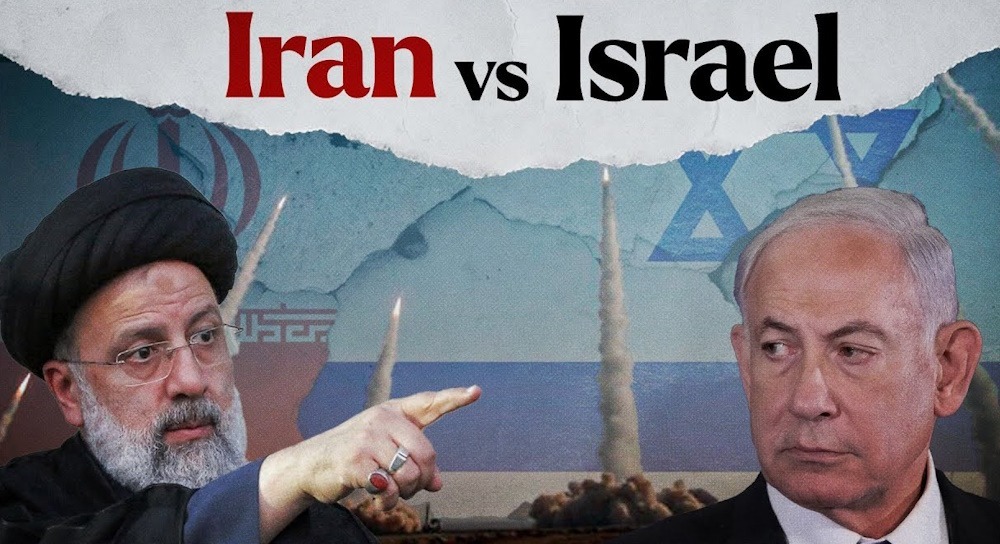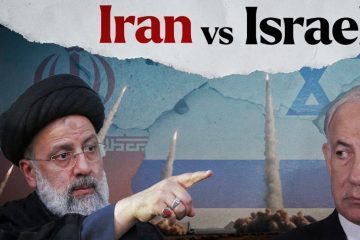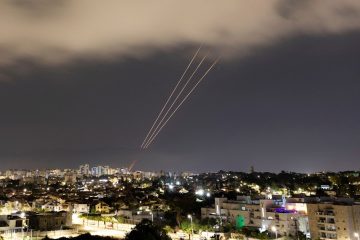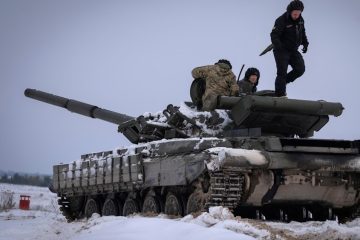After Iran’s attack, Israel next move is complex

Israel is considering how to respond to the drone and missile attack from Iran, which was a direct assault on its territory. Finding a solution that avoids escalating the situation, maintains the partnership that helped defend against the attack, and doesn’t interfere with its objectives in Gaza is a complex task.
Israel’s war cabinet convened on Monday to deliberate on the appropriate course of action in light of Iran’s retaliatory strike. Tehran claimed that the attack was in response to the Israeli military’s targeted killing of a high-ranking Iranian general at an Iranian diplomatic facility in Damascus, Syria. Israel has neither confirmed nor denied any involvement.
“The objective is to respond strategically, in a manner that preserves the potential for regional and international collaboration that we have established,” stated Michael Oren, a former Israeli ambassador to the U.S.
Israel is confronted with a growing array of intricate political calculations. The country is currently engaged in multiple conflicts, including one against Hamas in Gaza, another on its northern border with Hezbollah, and also facing the challenge of suppressing unrest in the West Bank. Now, there is a growing need to reestablish deterrence with Iran. Decision makers face the challenge of maintaining a delicate strategic partnership with Iran, while also projecting strength and preventing future attacks.
President Biden has emphasized the importance of Israel exercising caution in its response to Iran’s attack. He also called on allies to come together and present a united diplomatic front to prevent the situation from escalating into a full-blown conflict that could impact the entire Middle East and involve the United States.
Operations in Gaza are also part of Israel’s strategic considerations, including a planned offensive in the densely populated southern city of Rafah. Israel views this offensive as crucial in its efforts to neutralize Hamas. However, this move has faced opposition from Israel’s close allies and Arab neighbors, who have come to its defense on Saturday. The situation in Rafah, where over a million Palestinians have sought shelter, has been a significant point of contention between Israel and the United States. According to residents of Rafah, Israeli strikes have persisted in the city despite the attack on Saturday.
From a political standpoint, analysts have noted that Israel’s decisions regarding Iran and Gaza may not be directly related, but they do share a certain level of connection.
Netanyahu’s conservative supporters are already dissatisfied with the lack of a ground operation in Rafah, which does not appear to be imminent due to Israel’s withdrawal of most soldiers from Gaza. Israel is mobilizing two reserve brigades in the near future to provide support in Gaza, although additional forces will be required for any significant military action. Now, supporters of Netanyahu are advocating for a robust response to Iran.
Israel’s national security minister and a prominent voice of Israel’s hard right, Itamar Ben-Gvir, emphasized the need for a strong deterrent strategy in the Middle East. He suggested that Israel should take assertive actions to ensure its security.
According to Chuck Freilich, a former Israeli deputy national security adviser, if no action is taken against Iran or in Rafah, it could worsen Netanyahu’s already weakened political support. According to Freilich, finding a balance is crucial, even if he aims to exercise caution in both areas.
According to Israeli security analysts, Israel has various options to consider for retaliation, while being mindful of not overextending its forces in Gaza, on its northern border, and in the West Bank. Possible choices involve cyberattacks and focused assaults on critical state-owned locations like Iranian oil infrastructure. Analysts suggest that Israel has previously targeted Iranian personnel and infrastructure associated with Iran’s nuclear program, without openly acknowledging it. They also believe that Israel could potentially carry out similar actions in the future, but with a more overt approach. Analysts have suggested that Israel may consider an indirect response by targeting one of Iran’s regional proxies, in addition to direct strikes on Iran.
Experts believe that the possibility of an Israeli attack on significant Iranian nuclear facilities is highly improbable. This is mainly due to the fact that these sites are located deep underground, making it extremely challenging to target them without the support and assistance of Washington. According to Oren, the former Israeli ambassador and historian, the U.S. has never authorized an Israeli counterattack. “When we transition from defense to counter-offense, we experience a significant loss of American support,” he added.
According to Sima Shine, the head of the Iran program at the Institute for National Security Studies, there is a higher probability of strikes being carried out on specific military targets in Iran. These strikes are based on thorough intelligence gathered by Israel. However, she doubted that such retaliation would occur in the near future, as it would need backing from Washington. According to Shine, if Israel were to retaliate, it would probably steer clear of targeting Iranian civilian and economic sites.
U.S. and Western officials expect Israel to promptly retaliate against Iran’s attacks, possibly as early as Monday, according to officials. However, the officials expressed optimism that both countries could achieve a mutually beneficial outcome, allowing them to avoid further escalation.
Israel could also decide to delay taking action until a later time. We can consider the alternative of “we will respond, but not immediately.” Ehud Yaari, a fellow with the Washington Institute for Near East Policy, predicts that Iran’s actions will provoke a response and retaliation from Israel in the future. “It appears evident that Israel will need to address the Iran situation at some stage, although not presently,” he remarked.
The U.S., U.K. and France attempted to deescalate tensions following their participation in Saturday’s powerful demonstration of collective defense. They called on Israel to exercise restraint in order to avoid further escalation in the broader Middle East region.
“It is important for us to support Israel in ensuring its security, while also advocating for restraint to prevent further escalation,” stated French President Emmanuel Macron on Monday.
During a call on Saturday evening with Netanyahu, Biden advised the Israelis to exercise caution following the successful joint operation to prevent Iran’s attack.
On Saturday night, drones heading towards Israel were intercepted by the U.S., France, and the U.K. Meanwhile, the United Arab Emirates and Saudi Arabia, despite not officially recognizing Israel, privately agreed to share intelligence. Jordan, which has consistently urged Israel to implement a cease-fire in Gaza, has agreed to grant access to its airspace for U.S. and other nations’ military aircraft. Additionally, Jordan will deploy its own aircraft to support the interception of Iranian missiles and drones, according to Saudi and Egyptian officials.






